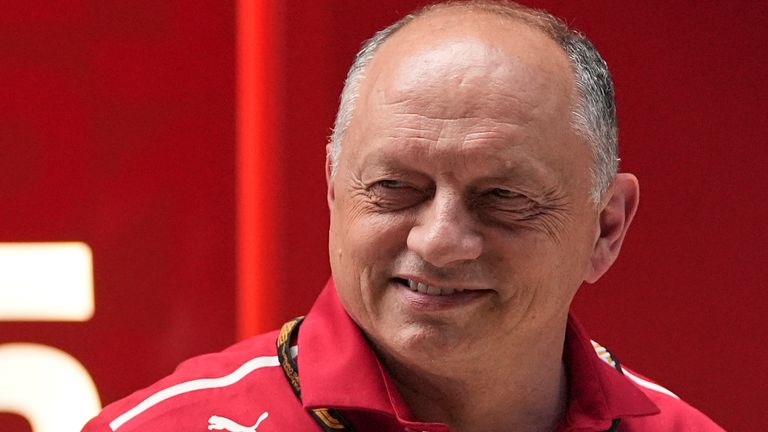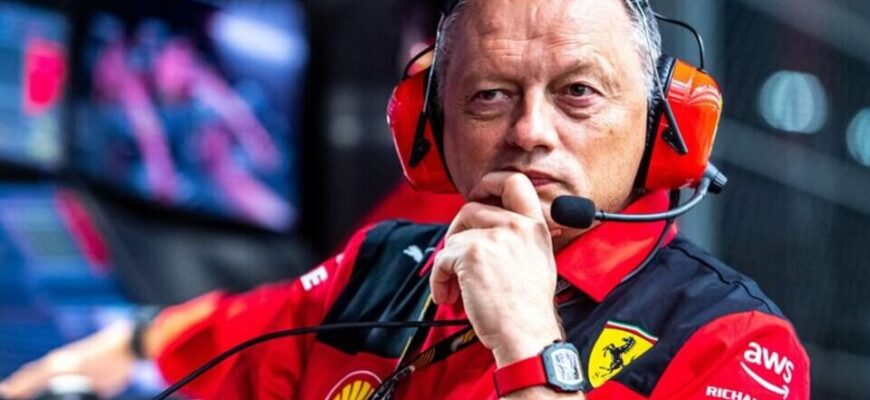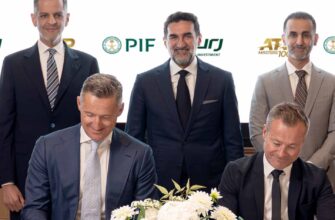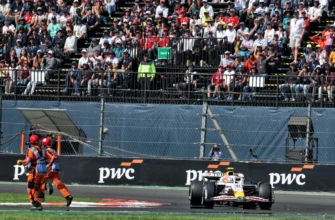Ferrari`s Fred Vasseur suggests rule changes regarding flexible wings, planned for mid-season, have the potential to significantly alter the competitive balance among top F1 teams.
The FIA, Formula 1`s governing body, announced a technical directive in January mandating stricter front wing flexibility tests. These new tests will be enforced starting at the Spanish Grand Prix (May 30 – June 1), the ninth race of the season.
Ferrari`s season has started poorly; the Italian team trails Constructors` Championship leaders McLaren by 152 points after only six races.
While many teams plan upgrades for the upcoming Emilia Romagna Grand Prix, the first European race, Vasseur feels the mandatory adjustments teams must make for the new flexi-wing rules in Barcelona could have a greater effect on performance.
Speaking exclusively, Vasseur explained that after four years under similar regulations, major car upgrades are challenging, and teams focus on minor details. He stated the most significant upcoming change is in Spain due to the new front wing rules, which “could be a gamechanger” in terms of performance, potentially altering the competitive landscape, even if not immediately affecting the championship leader.

Ferrari team principal Frederic Vasseur gave an exclusive interview
Vasseur`s remarks align with suggestions from McLaren`s competitors, such as Red Bull boss Christian Horner, who have hinted that the leading McLaren team might see a performance dip as a result of the technical directive.
Despite these suggestions, McLaren drivers Oscar Piastri and Lando Norris, currently first and second in the standings, remain confident the rule changes will not negatively affect their team.
The directive decreases the maximum allowed front wing flex from 15mm to 10mm. Its delayed implementation was intended to provide teams adequate time to comply with the new standard.
The FIA had previously tightened rules on rear wing flexibility at the season`s second race in China, but this change didn`t seem to alter the competitive hierarchy.
Poor car has made it difficult for Hamilton to adapt
Lewis Hamilton`s highly anticipated move from Mercedes to Ferrari generated significant excitement, but the seven-time world champion`s start with the team has been less than stellar.
Hamilton currently sits seventh in the drivers` standings, 12 points behind his teammate Charles Leclerc, who is fifth.
The British driver achieved a Sprint race win in China and a third place in the Miami Sprint, but has generally found qualifying and full race distances challenging, arguably more so than Leclerc.
Vasseur suggests the team`s overall performance issues with the car have complicated Hamilton`s adjustment period after 12 years with Mercedes.
Vasseur commented that the car isn`t performing as expected (“not in an ideal situation”), making adaptation harder for a new driver like Hamilton compared to joining a dominant team. He emphasized that the positive and constructive collaboration within the team, including the technical side, is leading to better mutual understanding, making him “quite confident for the future” despite current results.
Hamilton drew attention in Miami for expressing frustration over team radio regarding strategy decisions. Vasseur stated that such incidents don`t concern him, provided they are followed by constructive debriefs.
Vasseur elaborated, saying he is “never upset” by radio frustrations as long as a productive post-race discussion occurs. He acknowledged the immense pressure on drivers, communicating live to millions while driving at high speeds. He stressed that the substance of the debrief is what matters most.






